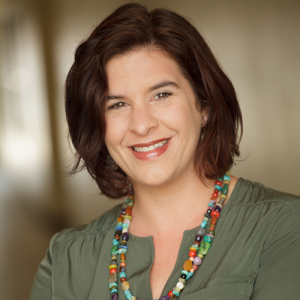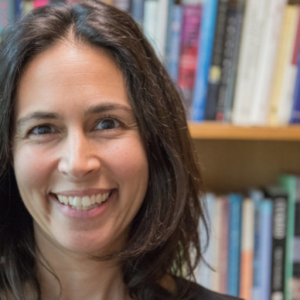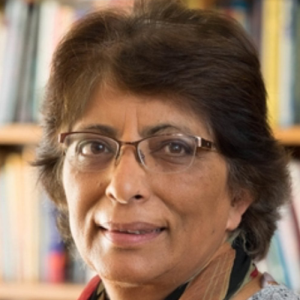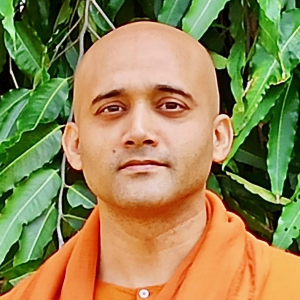
Amanda Lucia
University of California-Riverside
Returning to the Roots of White Utopias: The Religious Exoticism of Transformational Festivals
As the festival season struggles to return in 2022, the dust has settled on the racially-charged Summer of 2020, and the trials of officers and citizen-vigilantes who killed unarmed Black citizens and #BlackLivesMatter protesters are relatively quietly underway. The US congress struggles to produce accountability for the Trump-inspired attempted coup at the US capitol on January 6, 2021, and Covid-19 and its endless variants have produced a population as exhausted as it is conflicted over the valuation of individual versus community well-being. When I sent White Utopias to press in Summer 2020, I was anxious over whether the apparent racial uprising that was underfoot would undermine its primary arguments, and render the book obsolete before it was even published. In this talk, I reconsider that naïve optimism, and evaluate the ways in which the religious exoticism of American spirituality remains relatively unchanged, defined by a resilient form of white possessivism. I trace the roots of this not only to the power and privilege of whiteness, but also to the myopic focus on the self that generates a sense of justified irresponsibility and ultimate disregard for solidarity, community, and friendship work with the cultures and peoples from which its spiritual tools are extracted.

Shameem Black
Australian National University
Right Hand, Left Hand: The Flexible Politics of Yoga
Yoga promotes flexibility – and not just for those in downward dog. This talk takes yoga as a lens to understand key contradictions in twenty-first-century ideas of “India” and “Indianness,” especially in the context of national soft power aspirations, expanding capitalist practices, international migrations, and political violence. While many cultural practices in today’s India exemplify “culture wars” between liberal and conservative agendas, I argue that visions of yoga can offer a “culture peace” that conceals, without resolving, such tensions in India and beyond its borders. This talk argues that twenty-first-century Indian and Indian diasporic novels in English expose important political fantasies of yoga by revealing the intimacy between “right hand” ideals of Vedic-inspired peace and “left hand” traditions of sinister violence. In these fictions, the yogi as the spy or assassin takes on renewed life to make sense of key twenty-first-century challenges that include India’s embrace of neoliberalism and its anxieties over national and gendered security.

Meera Nanda
Formerly IISER Pune
Captured by the Vedas: “Yogic seeing” as a strategy for Sanskritizing modern science
In its encounters with modern science, Hinduism has managed to capture empirically warranted theories of modern science – Scienceemp – in a web of unfalsifiable claims of “spiritual science” which trace their origins to the Vedas – Scienceved for short. Even as it has embraced an aggressive scientism as a mode of self-presentation, modern Hinduism continues to adamantly insist on the “eternalism” of the Vedas, maintaining steadfastly that the authorless, timeless and infallible truths of the Vedas cannot be contradicted by any “merely” human mode of inquiry.
How has Hinduism managed to capture modern science in the web of the Vedas? I will delineate two modes of argumentation that have been deployed by modern Hindu thinkers. The first, pioneered by Swami Dayananda Saraswati, follows the path of Mimamsa and reinterprets the Vedic mantras not as referring to Vedic gods but to material entities and forces that have the qualities of the gods. The second, pioneered by Swami Vivekananda, follows the path of Yoga and reinterprets yoga itself as a method of science which can reveal imperceptible entities theorized by modern natural sciences. Both paths end up asserting priority-claims on modern science as already-always contained in ancient Hindu sacred books and practices.
The role that yogic-seeing as scientific-empiricism has played in modern historiography of Indian sciences will be explored in further details. I will argue that yogic perception as a legitimate “scientific” way of knowing has served as the ultimate justification for defense of ancient Hindu knowledge systems like alchemy, Hindu theories of intelligent design, and Ayurveda as alternative and superior sciences in their own rights. Scientization of yogic experience is the primary mechanism through which an “eternal” tradition scientizes.

Swami Medhananda
Ramakrishna Institute of Moral and Spiritual Education, Mysore
From Advaitic Inclusivism to Yogic Pluralism: A New Diachronic Interpretation of Swami Vivekananda’s Views on Religious Diversity
Most scholars writing on Swami Vivekananda claim that his doctrine of the harmony of religions is based on an Advaitic hierarchical inclusivism, according to which Dvaita and Viśiṣṭāḍvaita are lower stages on the way to the pinnacle of Advaita. I argue, by contrast, that Swami Vivekananda’s views on the harmony of religions evolved from 1893 to 1901 in three phases. In the first phase from September 1893 to March 1894, he defended the equal salvific efficacy of the major world religions but claimed that a “universal religion” that would harmonize all the world religions was an “ideal” that did not yet exist. In the second phase from September 1894 to May 1895, he claimed that the universal religion already exists in the form of Vedānta, which he expounded in terms of the “three stages” of Dvaita, Viśiṣṭādvaita, and Advaita. However, by late 1895, he abandoned his earlier attempt to ground the harmony of religions in the three stages of Vedānta. Instead, he held that every religion corresponds to at least one of the four Yogas—namely, Karma-Yoga, Bhakti-Yoga, Rāja-Yoga, and Jñāna-Yoga—each of which is a direct and independent path to salvation. On this basis, Vivekananda defended not only a full-blown religious pluralism but also the radical cosmopolitan ideal of enriching our spiritual lives by learning from, and even practicing, religions other than our own.

